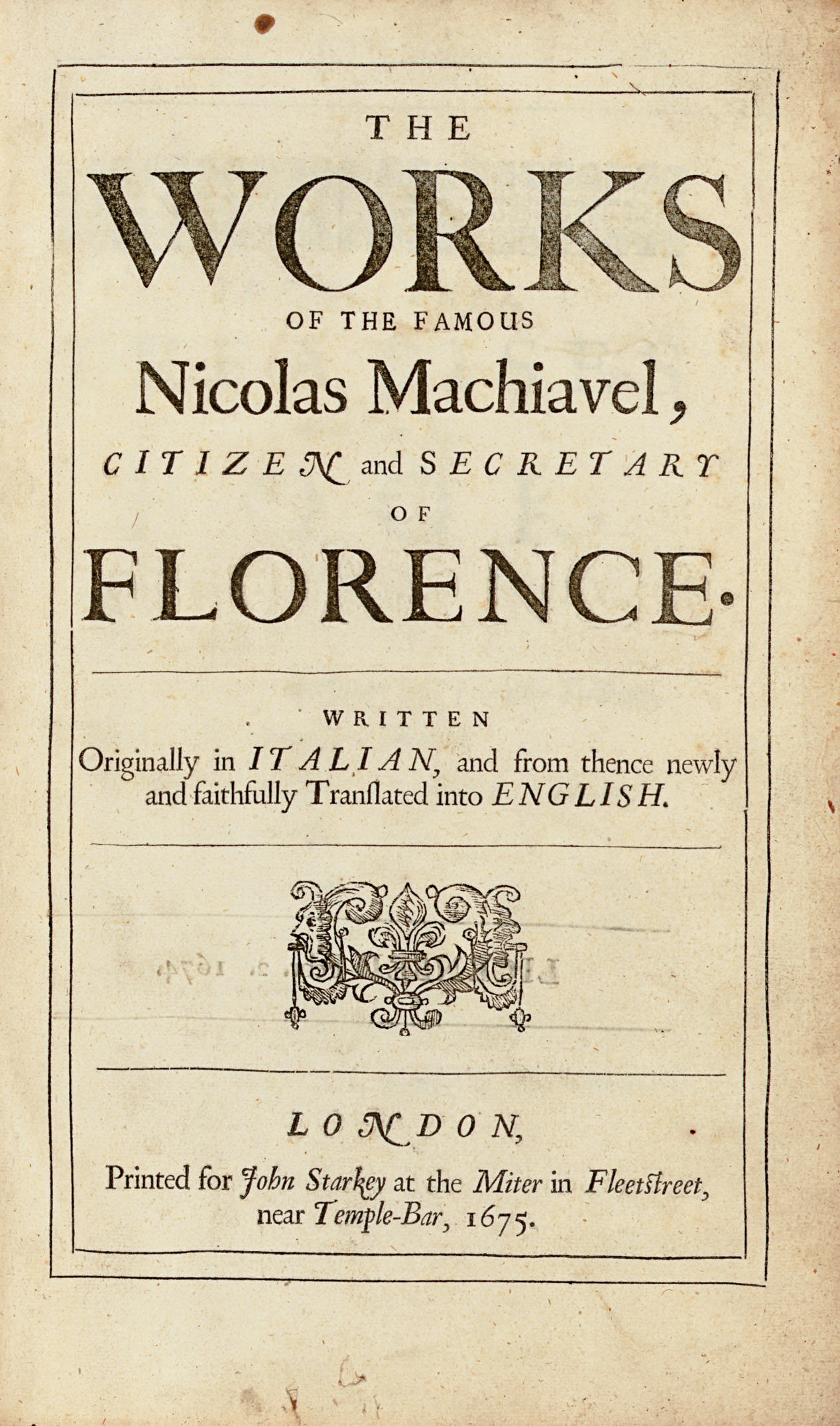Niccolo Machiavelli
Niccolo Machiavelli’s The Prince was arguably one of the most influential writings for the birth of modern political philosophy. He was the first to describe good leaders in a realistic light, rather than the typical idealistic outlook of certain characteristics that leaders should possess. According to Machiavelli, the most powerful people don’t succeed by being noble or loved. He asserts that leaders maintain control over the state by creating deterrence in the people. In other words, politics is defined by how well a leader can manage the power and application of force. Laws will be obeyed only if the people are afraid of the consequences, like loss of freedom. He argues that human nature is largely self-serving, and this is why leaders shouldn’t count on the benevolence of others. The Prince is extremely controversial, almost seeming as if no two people can look at it the same way. Machiavelli never got to witness the influence of his works as they were published a few years after his death. It’s hard to tell what Machiavelli’s position would be on the powerful figures that claimed to have essentially followed his prototype.
His viewpoint is a result of his face-to-face observations and experience with the Florentine Republic’s government. Machiavelli wrote The Prince to address a young prospect in the Medici family, after Machiavelli was exiled in 1513 following the Medici’s rise to power in Florence. His main message in The Prince advocates for doing whatever it takes to maintain the safety and order of the state. The foundations of a solid political system lie in good laws and good arms. Hence, the validity of laws rely on deterrence. Many misinterpret The Prince as encouragement of inhumanity and malice for a leader’s own sake. However, the last section of The Prince proves otherwise because he talks about wanting a strong leader for the good of Italy, not advocating for a leader to take power in self interest. Furthermore, he believes that a good leader must have an extensive education and background.
Machiavelli had a huge influence following his death during the early modern era. He was the original thinker to express how the world really works or how it worked in that time period, at least. “Until Machiavelli’s writing, most philosophers of politics had defined a good leader as humble, moral, and honest. Machiavelli had shed that notion, saying frankly, ‘it is better to be feared than loved, if you cannot have both.’” When The Prince was published it was very popular and read extensively, despite being banned by both the Catholic and Protestant churches. This goes to show just how controversial it was, as the churches occupied way more power before the modern era.
Additionally, he has actually been blamed for influencing several different people and historical events. For example, William Shakespeare created multiple characters with “Machiavellian” traits; Macbeth is arguably the most aligned with The Prince concepts. Not to mention, some believe Machiavelli influenced Hitler and others. “…Stalin was known to have read and annotated his copy of the book. Business leaders have looked to the work as a cutthroat approach…and the book has been called the ‘Mafia Bible’ with gangsters,” perhaps it’s a stretch to blame Machiavelli for any event, because the book itself is rather subjective. Some that have idolized Machiavelli could have taken his writing out of context.
One must focus on all aspects of his theory to attempt to understand his intentions. He wrote this at a time of great distress and conflict between Italy, Spain, and France. He even says throughout the chapters that Princes should always act with morality when it’s in the interest of the people. He faces his harshest criticism when people look at his defense of ruthlessness. Yes, he may have inspired some really bad people, but he can’t be blamed for their actions when his true intentions are debatable. Lastly, Machiavelli can be referred to as a founder of modern political philosophy because it’s based on the reality of the world, not an ideal world. This is why he’s an important historical figure. “It is not titles that honor men, but men that honor titles.”
Borghini, Andrea. “Machiavelli's Life, Philosophy, and Influence.” ThoughtCo, ThoughtCo, 3 Feb. 2019, http://www.thoughtco.com/niccolo-machiavelli-1469-1527-2670474. History.com Editors. “Machiavelli.” History.com, A&E Television Networks, 23 Mar. 2018, http://www.history.com/topics/renaissance/machiavelli. Mansfield, Harvey. “Niccolò Machiavelli.” Encyclopædia Britannica, Encyclopædia Britannica, Inc., 12 Dec. 2019, http://www.britannica.com/biography/Niccolo-Machiavelli. Nederman, Cary. “Niccolò Machiavelli.” Stanford Encyclopedia of Philosophy, Stanford University, 28 May 2019, plato.stanford.edu/entries/machiavelli/.
